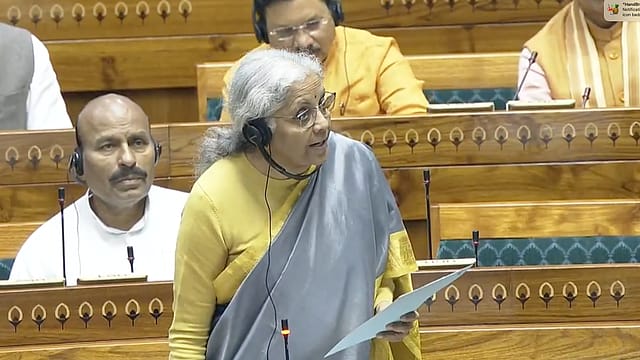New Income Tax Bill tabled: Here are the key changes to income tax you need to know
ADVERTISEMENT

Finance Minister Nirmala Sitharaman today tabled the long-anticipated Income-Tax Bill, 2025 in the Lok Sabha, as announced in the Budget 2025. The Bill aims at simplifying the income tax law, repealing the Income Tax Act, 1961 and will come into force from April 1, 2026.
"The Income-tax Act passed in 1961 has been subjected to numerous amendments since its passage 60 years ago. As a result of these amendments the basic structure of the Income Tax Act has been overburdened and language has become complex, increasing cost of compliance for taxpayers and hampering efficiency of direct-tax administration," Finance Minister Nirmala Sitharaman says in the statement of objective of the bill.
“Tax administrators, practitioners and taxpayers have also raised concerns about the complicated provisions and structure of the Income-tax Act. Therefore, the government in the budget in July 2024 announced that a time-bound comprehensive review of the Income-tax Act, 1961 would be undertaken to make the Act concise, lucid, easy to read and understand. Accordingly, the Income-tax Bill, 2025 has been prepared which proposes to repeal and replace the Income-tax Act, 1961,” Sitharaman added.
Among the major changes, the bill has defined “tax year” as the twelve-month year starting from April, doing away with the earlier practice of assessment year and previous year.
Amongst the other major provisions, the bill has expanded the principle of "Significant Economic Presence" (SEP). Significant Economic Presence (SEP) is a concept introduced in India’s tax framework to tax foreign digital businesses that earn from Indian consumers without having a physical presence in the country. It ensures that multinational corporations providing digital services to Indian users pay taxes in India, even if they do not have an office or a permanent establishment (PE) in the country.
With the provision, foreign digital companies will be taxed if they earn from Indian consumers. Any company offering digital services, content, or e-commerce to Indian users will now be liable to pay income tax in India, even if they do not have an office or subsidiary in the country.
This applies to companies providing streaming services (Netflix, Spotify), e-commerce platforms (Amazon, Shein), gaming platforms, and social media giants (Meta, X).
Through the bill, the government has also sought to tighten the noose against crypto transactions. Banks and other reporting entities, specified by the government, will have to furnish information pertaining to the transaction of crypto assets, according to the provisions contained in the Bill. The due diligence process to identify crypto-asset user or owner by the entities will be notified by the government in the rules post the passage of the Bill.
Tax practitioners, however, point to some shortfalls. “Nothing has been done on compliance and litigation front. After the massive exercise the government has undertaken, it was expected that the compliance burden should have been reduced. It has not happened. Also, there is no way forward on the pending tax litigations,” said Ved Jain, past president of the Institute of Chartered Accountants of India.